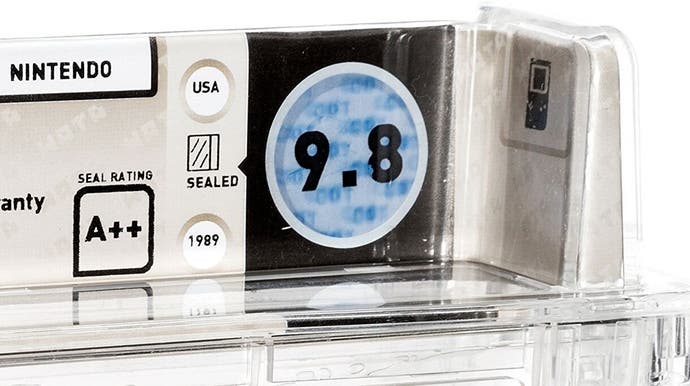Game grading company Wata accused of manipulating retro game market in new lawsuit
And of "engaging in unfair business practices".
Game grading company Wata Games is the target of a new US class action lawsuit accusing it of unfair business practices and of manipulating the retro gaming market for its own gain.
As reported by VGC, the lawsuit was filed on 10th May in the Central District of California, representing class members (estimated to be as many as 10,000 individuals) who all paid for game grading and other services by Wata. It accuses Wata of "engaging in affirmative acts to manipulate the retro video game market" and of "engaging in unfair business practices", specifically pointing the figure at Wata president and CEO Deniz Kahn.
Kahn is accused of working with auction house Heritage Auctions co-founder Jim Halperin - a previous Wata investor and advisory board member - to manipulate the retro games market through promotional efforts and media interviews, in which the pair are said to have claimed that retro games prices would continue to rise.
Notably, Wata and Heritage Auctions have been connected to a string of eye-watering vintage game sales over the last few years. A pristine sealed copy of Super Mario 64 rated by Wata and auctioned by Heritage sold for $1.56m USD last July, and, just several weeks later, a copy of Super Mario Bros. handled by the two companies sold for a record-breaking $2 million.
Prior to Wata's entry into the market in 2018, as noted in the newly submitted court documents, the previous record was held by a copy of Super Mario Bros., which sold for around $30,000 in 2017. Just a year after Wata's founding, though, another copy of Super Mario Bros. - graded by Wata and sold by Heritage Auctions - sold for $100,150 USD. The lawsuit alleges it was actually Heritage Auctions' Jim Halperin, along with two other men, that bought the game.
The lawsuit also highlights that Wata and Heritage both benefit financially from grading and game sales, meaning they stand to benefit considerably from a rise in market prices. Wata, for instance, charges a percentage of a game's market value when grading it - it would stand to make over $20,000 USD from a game valued at $1m according to VGC - while Heritage charges a 20% buyer's premium, and takes 5% from the seller.
"Heritage Auctions benefitted by earning more commissions from sellers and buyers," the court documents claim. "Halperin benefitted from the value of his game increasing. Wata benefitted by the increased notoriety and increased demand for grading services.
"Also, the increased value of the games allowed Wata to charge even more for its grading services since prices were tied to values. Yet, the relationship between Wata and Heritage Auctions was still unknown to collectors.
"Meanwhile, video game collectors rushed to send in their own sealed games into Wata for grading, believing they could sell the games for profits as the market soared.
"Unbeknownst to collectors, Wata was massively bogged down by the rush. Still the company advertised false and overly optimistic turnaround times on its website. Customers were not notified of the delays in advance of their purchases. Wata continued accepting orders and payments from customers."
Elsewhere, the lawsuit also resurfaces allegations Wata employees have been selling Wata-graded games in breach of the company's own fraud and conflict of industry policies - an accusation levied at Wata chief advisor Mark Haspel last year.

